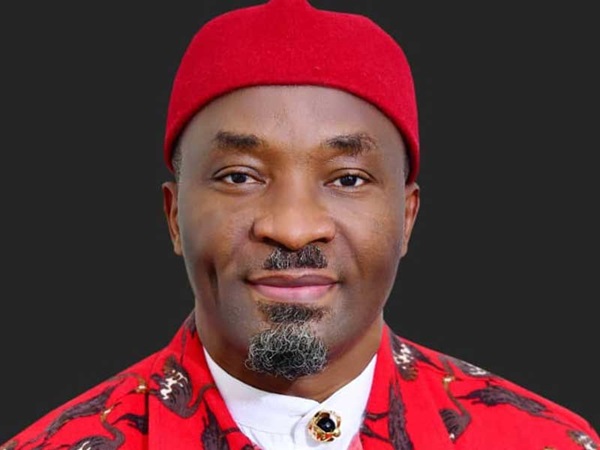
Deputy Speaker of the House of Representatives, Hon. Benjamin Kalu has renewed calls for the swift passage of the Special Seats Bill, stating that the increased inclusion of women in Nigeria’s legislative process could boost the country’s gross domestic product (GDP) by up to nine per cent.
Speaking at a high-level stakeholder engagement in Abuja on Friday, Kalu described the proposed legislation not merely as a matter of fairness, but as a strategic economic and democratic imperative that Nigeria can no longer afford to ignore. “We are losing nine per cent growth by excluding women,” Kalu said, urging lawmakers and citizens alike to view the bill not as a favour to women, but as a national investment in prosperity and equity.
The Special Seats Bill (HB 1349), currently before the National Assembly, proposes the reservation of additional legislative seats for women at both the national and state levels. Kalu described it as a “historic pathway to equity, innovation, and national prosperity,” emphasising that Nigeria’s democracy cannot flourish without the full inclusion of women.
Kalu opened his address with what he termed a “classroom session,” where he broke down the bill’s objectives and potential impacts. He said House Bill 1349 was informed by more than 30 years of advocacy and consultations.
The bill proposes 37 new seats in the Senate, one per state and one for the Federal Capital Territory, and 37 in the House of Representatives. Additionally, it would establish 108 extra seats across the State Houses of Assembly – three per state. These 182 seats would be reserved exclusively for women, without altering existing constituencies or limiting women’s ability to contest on general platforms.
“We are not taking anyone’s seat. These are additional seats for women and they will have equal status, voting rights and responsibilities,” he clarified.
A sunset clause built into the bill ensures a review after 16 years – or four electoral cycles – to determine whether to continue, revise, or repeal the law based on its impact.
Kalu emphasised that increased female representation correlates with more gender-sensitive legislation, better health and education outcomes, and more resilient democratic institutions. “I’ve never carried a child. So, when we talk about laws that affect women’s bodies, isn’t it better if women are the ones driving the policy?” he said. “You don’t cut someone’s hair in their absence. Women deserve a seat at the table.”
He also dismissed concerns about the financial implications of the bill, noting that the cost of implementation would be between 0.072 and 0.226 per cent of the national budget. “The cost of excluding women is far greater,” he warned.
Head of the European Union delegation to Nigeria and ECOWAS, Ambassador Gautier Mignot praised the bill as a homegrown solution. “This is not a foreign agenda. Countries like Mexico, Rwanda, Kenya, even Morocco and Egypt, have progressed. Nigeria must not lag. Nigeria is meant to lead,” he said.
Hon. Busayo Oluwole-Oke, the longest-serving federal lawmaker from Osun State, commended Kalu’s leadership and the bill’s inclusive spirit. “As one of the oldest in the parliament, I have seen constitutional amendments come and go. But this one is different. Kalu is leading a people-centred approach that includes our mothers, sisters and daughters,” he said.
Deputy Speaker of the Ekiti State House of Assembly and chairperson of the Nigerian Female State Assembly Members Forum, Hon. Bolaji Egbeyemi Olagbaju called the bill “a turning point.”
She said: “We are 48 strong women across the 36 states, five of us deputy speakers. We stayed back in Abuja just for this moment. We are ready to push this bill from the grassroots.
She spotlighted Ekiti’s track record of gender inclusion, with women serving as deputy governor, secretary to the state government, accountant-general, and in 49 special assistant roles. “We want to clap now, but we will clap harder when this bill becomes law,” she added.
Permanent secretary of the Federal Ministry of Women Affairs, Dr. Maryam Keshinro reaffirmed the Ministry’s support. “We will break our imbalances, deepen our democracy and inspire future generations of women to lead with confidence,” she said.
She also praised the wife of the president, Senator Oluremi Tinubu and President Bola Tinubu for their demonstrated gender sensitivity and political will.
Governance advisor at the UK’s Foreign, Commonwealth and Development Office (FCDO), Dr. Matthew Ayibakuro described the campaign for the Special Seats Bill as one of the most energising democratic efforts he has witnessed in Nigeria. He cited a lawmaker’s transition from scepticism to advocacy as proof of the campaign’s effectiveness and reaffirmed the commitment of the FCDO, EU, and other development partners to Nigeria’s democratic evolution.
Earlier, the executive director of the Policy and Legal Advocacy Centre (PLAC), Clement Nwankwo described the bill as a vital reform that tackles entrenched governance gaps. “It goes beyond representation; it is about building a balanced and effective legislature that reflects the diversity of Nigeria,” he said.
With the growing chorus of support, the Special Seats Bill is shaping up to be one of the most consequential reforms in Nigeria’s democratic history. Advocates say it offers a rare opportunity to align legislative practice with the country’s constitutional promise of equality and inclusive governance.

